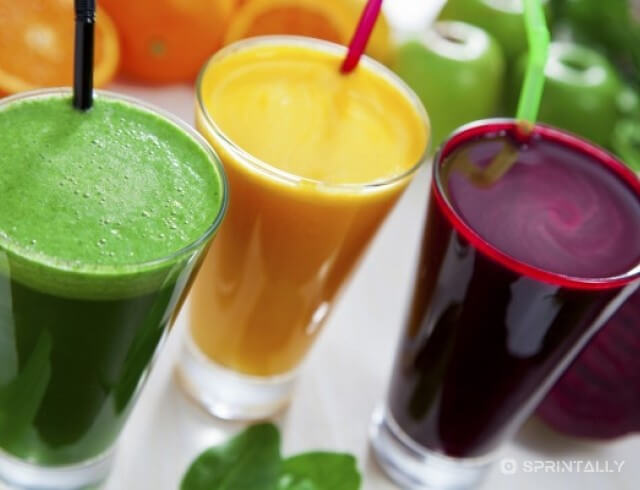Often in all our ailments and exacerbations, we begin to blame vitamin deficiency. But we are only partially right in this. The disease can be caused not only by vitamin deficiency, and the diagnosis itself can be made incorrectly.
Vitamin deficiency is a disease that occurs due to the complete absence of any vitamin in our diet. The regular use of sandwiches, fast food and sweet soda leads to a lack of vitamins in the body. The reason can also be poor ecology and modern products, in which there are fewer vitamins.
In order not to confuse your ailment with vitamin deficiency, read in our material the main signs of a lack of vitamins.
What are the symptoms of vitamin deficiency?

Paying attention to the symptoms, you can find out what kind of vitamin is missing in your body.
- Pallor, skin peeling, hair loss, nausea and loss of appetite. Reason: Biotin deficiency in the body.
- Chronic weakness and fatigue, dizziness, anemia. Reason: the lack of B12 (cobalamin) in the body.
- Reduced immunity (especially colds), frequent bruising on the skin (for no apparent reason), bleeding gums, poor wound healing. Reason: vitamin a deficiency (Ascorbic acid).
- Graying and hair loss, peeling skin, fatigue, burning in feet, gastrointestinal disorders. Reason: lack of Pantothenic acid.
- Cracks on the lips, seizures, cheilosis, inflammatory processes on the skin (dermatitis), impaired color perception, anemia. Reason: lack of B2 (riboflavin).
- Anemia, weakness, fatigue, irregularity, violation of the gastrointestinal tract, during pregnancy — miscarriage, congenital diseases of newborns. Reason: a lack of folic acid.
- Loss of appetite, poor sleep, excessive irritability, weakness, heart disorder, swelling. Reason: lack of vitamin B1 (thiamine).
- Lowered immunity, susceptibility to bronchopulmonary colds, worsening of visual acuity (especially at dusk), dryness, acne and skin peeling, dryness inside of the vagina, reproductive disorders ovarian, abrasions, damage to the structure and growth of hair. Reason: lack of vitamin A (retinol).
- The deterioration of blood clotting, bleeding tendency. Reason: lack of vitamin K.
- Impaired growth and preservation of bones and teeth. Increased nervous excitability and tendency to spasms of the muscles, especially the calf. The propensity for bone fractures and slow accretion. Reason: lack of vitamin D (calciferol).
- Anemia-anemia, sudden headaches, cramps in legs, increased the tendency to the destruction of red cells, infertility. Reason: a lack of vitamin E (tocopherol).
- Loss of appetite, excessive irritability, frequent nervous breakdowns. Depression, frequent headaches, anemia, change in mucous membranes of the tongue, dermatitis, the appearance of the hands and feet age spots, increased susceptibility to dental caries, susceptibility to seizures, sclerotic changes of the vessels. Reason: deficiency of vitamin b 6 (pyridoxine).
- Loss of appetite, lethargy, apathy, loss of sleep, irritability, nervousness, pallor and dryness of skin, inflammatory skin changes under the influence of light (photo), frequent dizziness, exhaustion, painful the weight loss. Reason: the lack of PP (Niacin).
How to avoid a lack of vitamins?

To feel good, you need to eat well, so it is very important to adhere to a balanced diet rich in nutrients. However, most people do not receive many vitamins and minerals that satisfy the basic needs of the body. Here’s what you should pay attention to first.
Iron
Do you constantly feel tired, weak and short of breath? You may be iron deficient. You are not alone, as it is one of the most common nutritional deficiencies in the world, especially among women, preschool children, vegetarians and vegans.
Every cell in your body needs iron to saturate the blood with oxygen. To raise iron levels, eat oysters, chicken, turkey, iron-rich cereals, spinach, and lentils. To improve iron absorption, eat it along with foods rich in vitamin C, such as oranges, bell peppers, strawberries, and kale.
Vitamin D
This nutrient deserves a place under the sun due to its ability to strengthen bones, fight infections, improve brain health and cheer up. Vitamin D is only produced when your skin is exposed to sunlight.
Fortunately, vitamin D deficiency can be avoided by not only spending time in the sun every day but also by consuming milk, yogurts, egg yolks and oily fish.
Vitamin B12
If your body does not have enough healthy red blood cells to function properly, then vitamin B12 deficiency may be the cause. But your diet can help you avoid or eliminate a deficiency.
Vitamin B12 is found only in foods of animal origin – milk, yogurt, cheese, fish, chicken and turkey. Vegetarians, vegans, and seniors should look for fortified foods: vegetable milk, breakfast cereals, and meat substitutes, or eat supplements.
Calcium

This powerful mineral is essential for maintaining healthy teeth and bones, as well as for controlling the functions of muscles, nerves and hormones. If you do not have enough calcium to support these important functions, the body will take it from the bones, which will increase the risk of osteoporosis.
That is why your plate must have cheese, yogurt, milk, fish, tofu, leafy greens and fortified foods. Keep in mind that you will also need enough vitamin D and magnesium to get the most out of this mineral.
Magnesium
Electrolytes are found not only in sports drinks. Magnesium is an indispensable electrolyte and mineral that is needed for every function, tissue and cell of your body. It is found in whole grains, herbs, cashews, black beans and even dark chocolate.
Avoid unpleasant symptoms and health problems associated with vitamin deficiencies by getting them from food. Be healthy!






